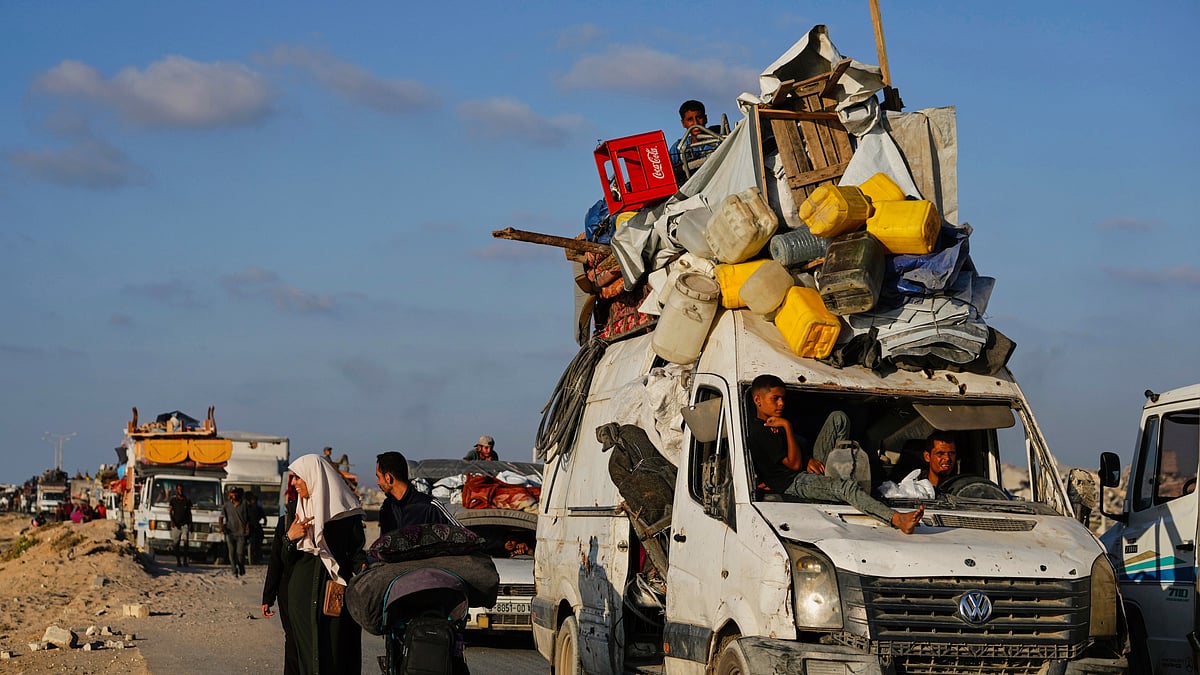World
Spain joins Eurovision boycott threat, demands Israel’s exclusion over Gaza
Madrid’s move adds weight to earlier boycotts from the Netherlands, Ireland and Slovenia, intensifies pressure on Israel and EBU

Spain on Tuesday became the latest country to threaten a boycott of the Eurovision Song Contest unless Israel is banned from competing, citing the mass killings and destruction in Gaza. Madrid’s move adds its weight to earlier boycotts from the Netherlands, Ireland and Slovenia, intensifying pressure on Israel and the European Broadcasting Union (EBU), which oversees the glitzy pan-European contest.
Spanish public broadcaster RTVE confirmed the decision after a board meeting in Madrid, a clear sign that outrage at Israel’s actions is now spilling into Europe’s cultural sphere.
The backdrop could not be starker: Israel’s relentless assault has reduced much of Gaza to rubble, killed tens of thousands of civilians — including women and children — and forced hundreds of thousands to flee in desperation. Spanish Prime Minister Pedro Sánchez this week said Israel should also be banned from international sporting events, making clear that Madrid is ready to push for cultural and political isolation until the bloodshed ends.
The EBU, under pressure, acknowledged it is consulting members on how to “manage participation and geopolitical tensions”, with a deadline in mid-December. But critics are not convinced.
When Russia launched its full-scale invasion of Ukraine in 2022, it was expelled from Eurovision almost overnight. Yet Israel, accused by UN experts on Tuesday of committing genocide in Gaza, continues to enjoy a platform in the competition. The inconsistency is glaring. “If Russia is banned for Ukraine, why does Israel get a free pass for Gaza?” has become a rallying cry for protesters across Europe.
The refusal to act decisively is seen by many as complicity. Eurovision’s claim to celebrate unity and peace rings hollow if it continues to welcome a state engaged in collective punishment and indiscriminate bombing.
Published: undefined
Spain’s decision is not just symbolic but politically significant. Relations between Madrid and Tel Aviv have grown increasingly tense after weeks of street protests and disruption of events such as the Vuelta cycling race, where demonstrators targeted the presence of an Israeli-owned team. Now Spain has gone further, becoming the first major Western European power to explicitly call for Israel’s cultural isolation.
This stance recalls the cultural boycott of apartheid South Africa, when sporting and artistic exclusion became a key tool in pressuring a regime built on systemic oppression. By threatening to sit out Eurovision, Spain and its allies are signalling that Israel’s actions in Gaza are not just military excesses but moral outrages demanding accountability.
The showdown now looms over Eurovision’s May finale in Vienna. If more countries follow Spain’s lead, the EBU could face a legitimacy crisis. To allow Israel’s participation is to normalise war crimes, critics argue; to bar Israel would be an unprecedented cultural rebuke of a government increasingly isolated on the global stage.
For Palestinians and their supporters, Spain’s announcement is more than symbolic. It is a reminder that voices of solidarity can pierce through the diplomatic fog, and that the world has tools — however small — to stigmatise and isolate a state that wages war with impunity.
The question for Europe is whether it will act with the same moral clarity it displayed against Russia, or whether it will allow double standards to undermine its credibility. In Gaza, as in apartheid South Africa decades ago, silence and neutrality are not options.
With AP/PTI inputs
Published: undefined
Follow us on: Facebook, Twitter, Google News, Instagram
Join our official telegram channel (@nationalherald) and stay updated with the latest headlines
Published: undefined